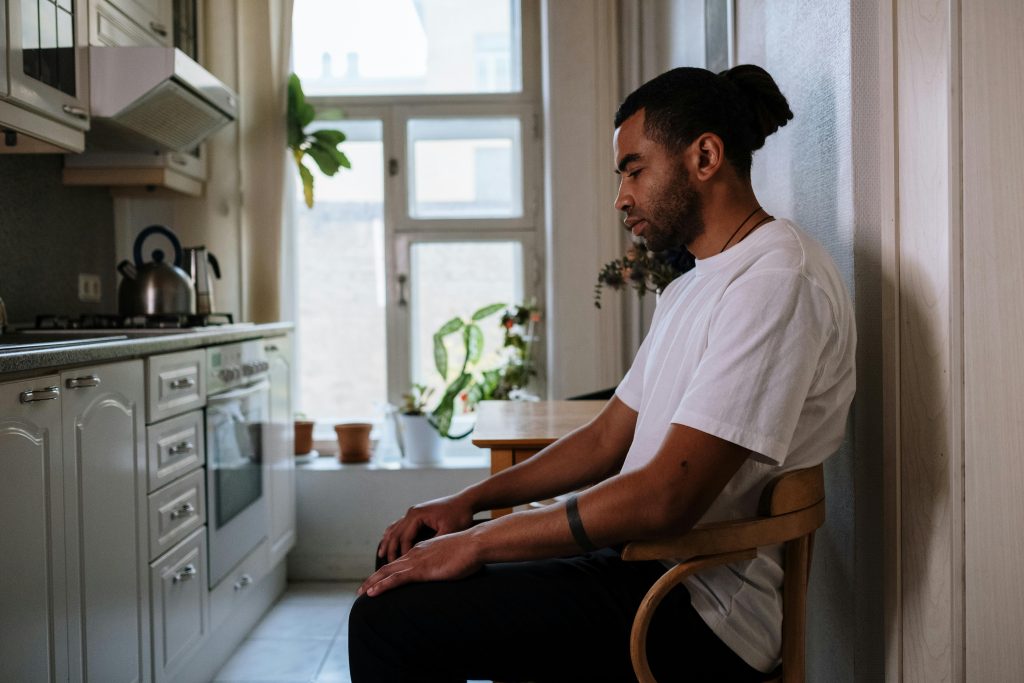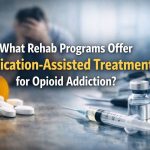Persistent Depressive Disorder is chronic depression, also known as dysthymia or dysthymic disorder, which may last over the years. Although the symptoms are generally not as serious as the major depression, their prolonged occurrence may drastically affect the performance of an individual, his/her relationships and life enjoyment.
PDD can proceed slowly making it impossible to notice it. Lots of individuals believe that they are just in bad mood as it is their character or the situation in their lives. Nevertheless, professional persistent depressive disorder treatment is a sure way to recovery and longer-term sustainability.

What Is Persistent Depressive Disorder (PDD)?
Persistent Depressive Disorder is a recurrent mood disorder, which is a continuous depressed mood in adults (one year in children or adolescents). PDD symptoms are persistent and are not cyclical as in the case of major depressive episodes.
Individuals with PDD can have normal mood phases separated sometimes by few days or weeks, but the sadness and lack of motivation remains. The emotional condition which results in fatigue, hopelessness and reduced self-worth can be sustained over a long period.
Generally, people who have PDD refer to it as living under an ever-present cloud or not ever feeling really happy.
What Are the Symptoms of Persistent Depressive Disorder?
Persistent depressive disorder has symptoms, which may differ depending on the individual, although emotional and physical symptoms tend to manifest. The initial process of seeking help is the identification of these symptoms.
Common Persistent Depressive Disorder Symptoms Include:
- Have been feeling sad/depressed most of the day.
- Loss of engagement in activities or hobbies.
- Fatigue or low energy levels
- Inability to make decisions and poor concentration
- Deficiency or insufficiency of self-esteem.
- Changes in the appetite (eating a lot or not eating at all).
- Excessive daytimeiness or insomnia.
- Despair, hopelessness of the future.
Due to the fact that these symptoms occur over time, most individuals live with them over the years without having the awareness they are suffering a mental health disorder that can be treated.
What Causes Persistent Depressive Disorder?
PDP lacks a single causative agent. Rather, it is usually a product of biological, psychological and environmental factors.
The possible Causes and Risk Factors Include:
- Genetic factor: Depression or mood disorders in a family history are predisposing factors.
- Brain chemistry: the disproportion of such neurotransmitters as serotonin and dopamine can be relevant in mood regulation.
- Trauma and stress: Stress at a young age or abuse or long-term stress may result in the emergence of long-term depressive patterns.
- Character factors: The low-self-esteem or pessimistic persons might be more susceptible.
- Medical conditions: Chronic diseases, hormonal abnormality or some drugs may cause or increase symptoms.
Knowledge of these causes assists mental health professionals to create treatments of persistent depressive disorders that would be effective to the specific needs of an individual.
How Is Persistent Depressive Disorder Diagnosed?
PDD can be diagnosed via a full-scale assessment of its health by a competent practitioner. In Solutions Healthcare, the clinicians consider your symptoms, medical history and emotional status in an attempt to establish the right diagnosis.
To meet the diagnostic criteria for PDD, symptoms must:
- Continue at least two years (one year of children and adolescents).
- Add at least two more symptoms like change in appetite or sleep, exhaustion or low esteem.
- Mass attack or destroy daily operations.
In some cases one might be affected by both major depressive and a PDD episode- a phenomenon referred to as a double depression. Proper diagnosis will be of importance to help in treating all underlying factors.
How Is Persistent Depressive Disorder Treated?
Although PDD is chronic, high-quality of life can be achieved by effective interventions of persistent depressive disorder. The combination of treatment, medication and lifestyle changes gives the best results.
Psychotherapy (Talk Therapy)
Through therapy, individuals get to know their thoughts, emotions, and behaviors with the development of healthier coping skills.
- Cognitive Behavioral Therapy (CBT): Helps to identify and change negative thoughts.
- Interpersonal Therapy (IPT): Takes place between relationships and communication improvement.
- Mindfulness-Based Therapy: Control and awareness of emotions are guaranteed.
Medication
The use of antidepressant medication is useful in restoring brain chemicals and alleviating symptoms.. Common options include:
- Selective serotonin reuptake inhibitors (SSRIs).
- Serotonin-Norepinephrine reuptake inhibitors (SNRI)
- Tricyclic antidepressants (TCAs)
Therapy and professional monitoring are usually the most effective means of using medication.
Lifestyle Modifications
Lifestyle changes can also promote long-term recovery made in little but regular changes. Examples include:
- Regular physical activity
- Maintaining a balanced diet
- Creating a regular sleeping pattern.
- Developing positive social relationships.
At Solutions Healthcare, we are integrated, or otherwise known as the mind and body, approach whereby every client is treated to persistent depressive disorder in accordance with their needs.

Take the First Step Toward Healing Today
When you or a loved one are experiencing the symptoms of the Persistent Depressive Disorder, you should not hesitate to consult. Through proper treatment, it is possible to recover and be happy.
Contact Solutions Healthcare at the present day (386) 866-3600 and find out how we treat persistent depressive disorder and start a path to a long-term emotional well-being.
FAQs About Persistent Depressive Disorder
1. How long does PDD last for?
PDD is at least a two year disease, though the symptoms may take much longer to go away without treatment. Through appropriate treatment and prescriptions, a good number of individuals recover tremendously.
2. What is the best medication for dysthymia?
No one medication is the best one. Sertraline or fluoxetine are common examples of SSRIs, and the correct choice can depend on a reaction to different drugs and medical history.
3. Can dysthymia be cured?
PDD can be treated successfully, although it may not have any permanent cure. Long-term remission helps a great number of individuals to live a normal life with continuous treatment.
4. What are the coping skills for dysthymia?
The coping skills that are effective are journaling, realistic goal setting, daily routine, and mindfulness or relaxation exercises.
5. How is PDD usually treated?
The treatment of PDD is usually a combination of psychotherapy, medication and healthy lifestyle changes- usually depending on the needs of an individual.




























